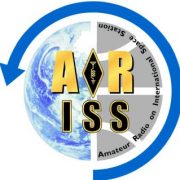ARISS Schoolcontact op vrijdag 3 november om 9:27 UTC
Op vrijdag 3 november om 9:27 UTC is er weer een schoolcontact te beluisteren en hoogst waarschijnlijk is dit contact ook via de BATC TV server te volgen. Het contact tussen Paolo Nespoli (IZØJPA ) in ISS en 2 scholen in Italie wordt zoals te verwachten is in het Italiaans gevoerd. Het grondstation in Italie wordt bediend door IQ5LI. Dit contact is in grote delen van Europa te volgen op de frequentie 145,800 MHz in smalband FM. De HAMTV zender wordt bij deze verbinding ook weer ingeschakeld zodat de verbinding live te volgen is via de BATC server. (https://ariss.batc.tv/hamtv/)
Hieronder volgt de beschrijving van de scholen en de vragen die de kinderen gaan stellen.
73’s
Bertus
PE1KEH
School Information:
The liceo scientifico “Francesco Cecioni” in Livorno is a high school with about 1200 students. The school was born in 1972 as a subsidiary but in 1974 already got its own identity for the experimental and innovative methods introduced as response to the demanding instruction innovation. Since 2010 the school has four specializations: scientific, linguistic, artistic and humanistic; the half of the students follow the scientific specialization. From the ’80s, Liceo Cecioni sent its representatives to the final rounds of the national competition in math and physics. At present, astrophysics is the topic of the “Astrolab” program, reserved for the best students of the school and organized in collaboration with a network that includes: TNG at Las Palmas (Canary), Pisa and Pavia University, Arcetri Observatory (Florence) and S.Marcello Pistoiese Observatory (Pistoia). The deep involvement in the “Zero Robotics” competition has increased the interest of the students in the space research.
Liceo Artistico “Melotti” in Lomazzo (Como) is arts high school addresses the study of aesthetic phenomena and artistic practice. It promotes the acquisition of specific methods of research and artistic production and the competence of related languages and techniques. It provides students with the tools necessary to know the artistic heritage in its historical and cultural context and to fully appreciate its presence and value in today’s society. It helps students to deepen and develop their knowledge and competences and to mature the skills necessary to give expression to their creativity and design skills in the field of arts. (Age 14-18)
Participants will ask as many of the following questions as time allows:
1. Come ‘è la percezione del tempo lassù?
2. Dopo tutto ciò che hai visto c’è ancora qualcosa che può impressionarti?
3. Cosa ti piace di più della vita nello spazio a gravità zero?
4. Hai mai avuto paura mentre ti trovavi nello Spazio?
5. Come gestisci o sfoghi le tue emozioni e tensioni sulla ISS?
6. Quanti anni hai studiato per diventare ciò che sei ora?
7. Ti sarebbe utile un sistema di realtà virtuale che simuli la vita sulla terra?
8. Qual è di preciso il tuo ruolo nella stazione orbitale?
9. Qual è il problema più difficile che hai incontrato durante la tua missione?
10. Quante volte sei stato nello Spazio?
11. Qual è il problema di convivenza più grosso a bordo della ISS?
12. Cosa provi quando ti rendi conto di essere lontano dalla Terra?
13. Cosa provi quando guardi fuori nello spazio?
14. Ti è mai capitato di vedere qualcosa di strano fuori nello Spazio?
15. Quando eri piccolo ti sarebbe piaciuto diventare astronauta?
16. Che significato ha per te essere un astronauta?
17. Come cambia il tuo umore quando sei nello spazio rispetto a quando sei a terra?
18. Puoi affermare di avere realizzato il tuo sogno e che è tutto ciò che hai sempre voluto?
19. Qual è la cosa che più ti spaventa riguardo alla tua missione?
20. Credi che un giorno la tecnologia potrà darci la possibilità di popolare un altro pianeta?
21. E’ fastidiosa la sensazione di “pesantezza” che hai al lancio?
22. Ti relazioni ogni giorno con la bellezza, la maestosità e la stranezza dello spazio; la tua concezione di questi termini è cambiata rispetto a quando eri sulla terra?
23. Hai la possibilità di personalizzare un tuo spazio sulla stazione spaziale?
24. Cos’e la prima cosa che pensi guardando la terra da lì?
25. Quale uso immagini per le sfere di Zero-Robotics?
26. Sei stato chiamato dall’ ESA oppure hai mandato un curriculum?
27. La prima volta che sei stato nello spazio è stata la più memorabile?
28. Quanto è durata la preparazione a questo viaggio?
29. Quale cambiamento nel tuo fisico noti quando vivi a lungo nello spazio?
30. C’è mai stata qualche emergenza e se sì, come agite?
31. Qual è stata la “scintilla” che ha acceso la tua passione per lo spazio?
32. Che scopo hanno le tue missioni?
33. E’ mai accaduto a qualcuno di prendersi un raffreddore o un’altra malattia a bordo della ISS?
34. Si riesce a vedere l’inquinamento prodotto dalla terra nello spazio?
35. Cosa accade quando uno starnutisce a bordo della ISS?
36. Le manca la sua famiglia?
37. Come gestireste una situazione di emergenza medica a bordo?
38. Prima di partire occorre una preparazione fisica e di che tipo?
39. Quali sono gli odori dominanti a bordo della stazione spaziale?
40. Che cosa ti affascina di più nello spazio




Plaats een Reactie
Meepraten?Draag gerust bij!